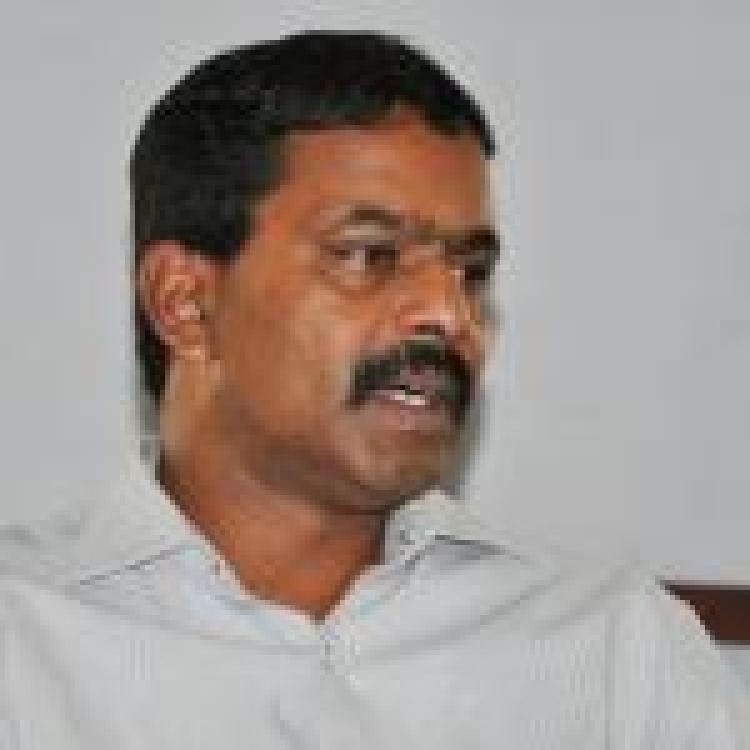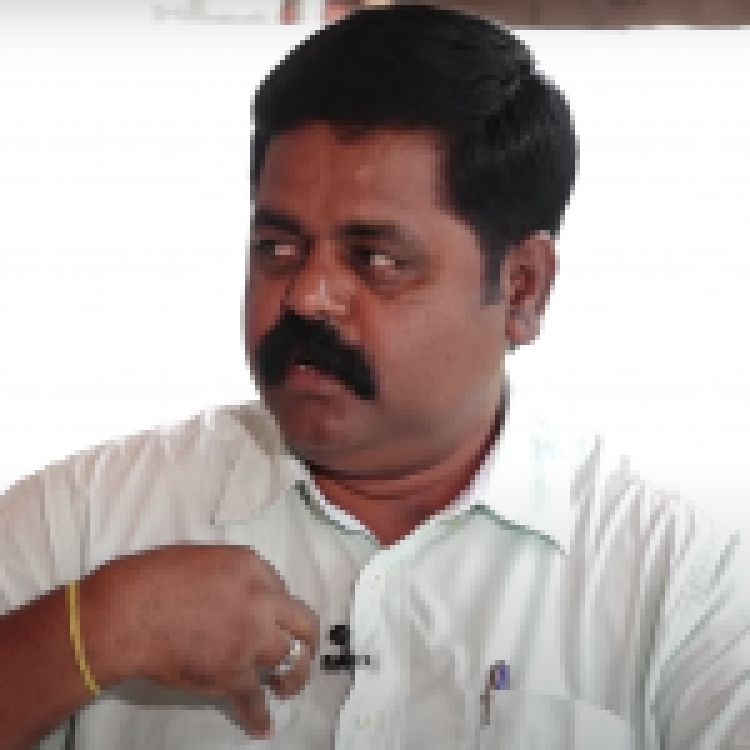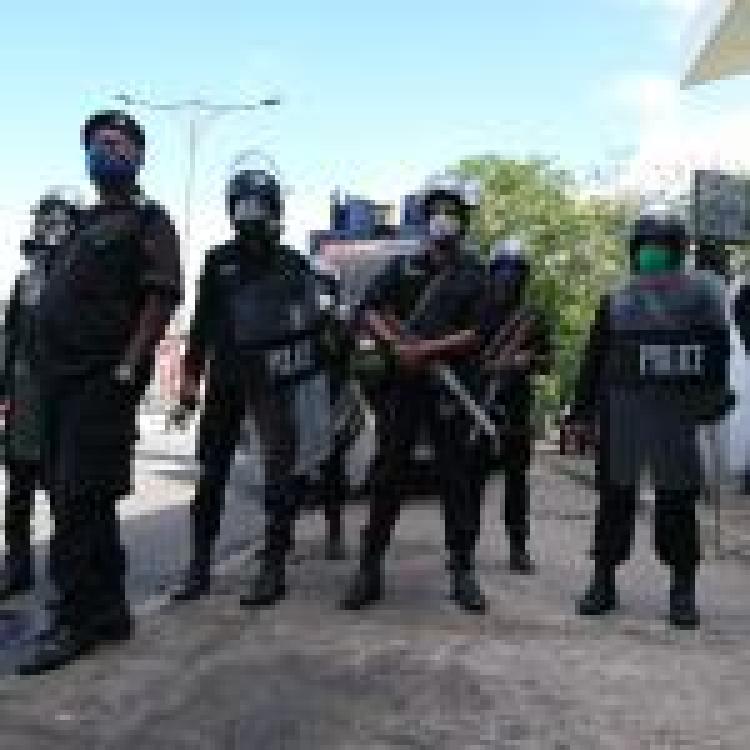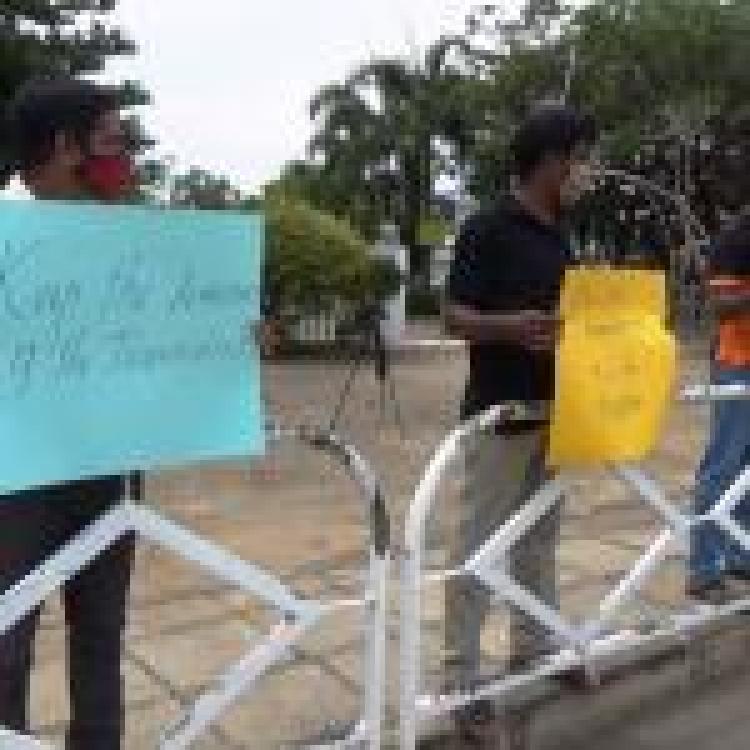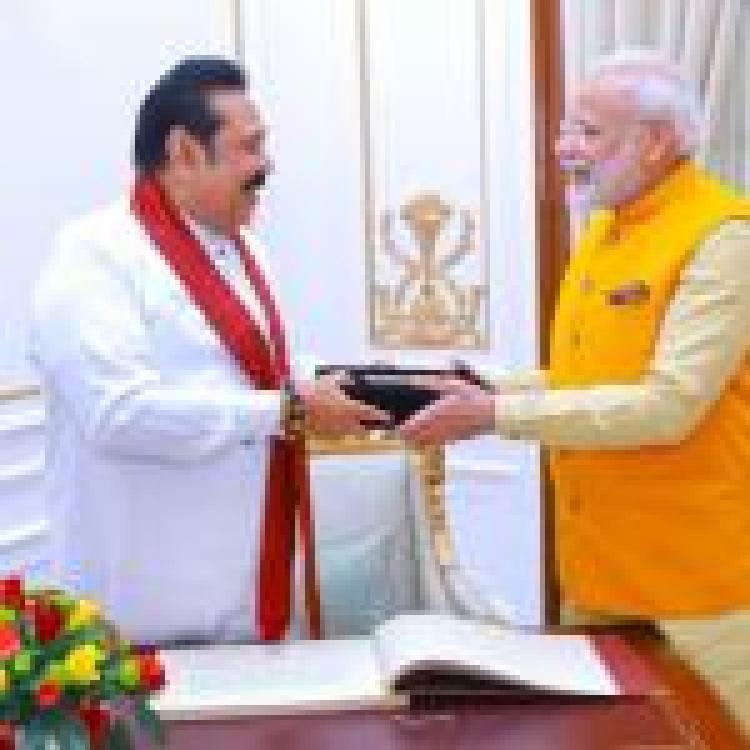Eleven international human rights organisations have cautioned the Sri Lankan government in a statement demanding that they end targeted detention and the intimidations of lawyers, activists, human rights defenders, and journalists in Sri Lanka.
According to the joint statement, signed by organisations such as Amnesty International, Human Rights Watch, the International Commission of Jurists, and CIVICUS;
‘‘A campaign of fear has intensified since the 2019 presidential election and has cast a shadow over the 2020 parliamentary election campaign’’.
Attacks on NGOs
![]()
The statement draws attention to several high-profile attacks on civil society actors, lawyers, journalists, and NGOs within Sri Lanka.
The statement reports that in February, the District Secretary in the Mullaitivu District ordered that only NGO’s “with at least 70 per cent of their activities focused on development would be allowed to work, effectively enabling arbitrary interference with and prevention of a broad range of human rights work”.
At the start of this month, Sri Lankan Prime Minister, Mahinda Rajapaksa, announced a special inquiry into Non-Government Organisations (NGOs) who he claims are “spreading slander against the government”.
The statement further details that a “Jaffna-based think-tank was visited several times, including soon after the Covid-19 lockdown, and questioned about its work, funding and staff details”.
The joint statement further added that the Human Rights Commission of Sri Lanka has cautioned against “an increasing number of such arrests since the issuing of a letter dated 1 April 2020”.
The attacks on Guruparan
![]()
The statement also drew attention to the worrying case of Jaffna based attorney, Kumaravadivel Guruparan, who was a prohibition from private practice of human rights whilst working at the University of Jaffna.
Guruparan was working on a case regarding enforced disappearances.
Read more here: In solidarity with Guruparan
The attacks on Achala Senevirathne
The statement also refers to the intimidation and harassment of Achala Senevirathne on social media, a lawyer who worked on enforced disappearances involving army officers.
Mahinda Rajapaksa has attacked the Office of Missing Persons is “inquisitorial body that can issue summons, examine witnesses, and collect evidence”. He states that the OMP “can search without a warrant any armed forces installation, police station, or prison and take into their possession any document or thing they deem necessary”.
This description of the OMP is at odds with the views of international legal experts such as Yasmin Sooka, Executive Director of the International Truth and Justice Project (ITJP) who described the OMP as having “no teeth”.
Sooka maintains that the limited progress towards reconciliation has been stunted by the inability “to deal with criminal accountability”.
The ITJP has documented the names of at least 293 people who were seen surrendering to the Sri Lankan military and have seen been disappeared. Among those is Father Joseph, who was last seen boarding a Sri Lankan military bus with several LTTE cadres whose surrender he had facilitated.
"We have reached out to the OMP and said, "truth lies within your hands" you can subpoena the Sri Lanka commanders who were there on those days to find out about these victims whereabouts. They have failed to act," Sooka said.
Read more here: Mahinda Rajapaksa warns against 'minor distractions' of Karuna and urges focus on 'foreign conspirators'
The detention of Hejaaz Hizbullah
![]()
The statement also raised concerns over the detention of lawyer Hejaaz Hizbullah under the draconian Prevention of Terrorism Act (PTA).
The PTA has been widely panned by the international community for it enables Sri Lanka’s security forces to detain without charge. Whilst the previous administration claimed a commitment to repealing the law, the current Rajapaksa regime has walked away from such a commitment.
Hizbullah is a prominent Muslim lawyer and was critical of the government. He had previously criticised the banning of burials, as according to Islamic practice, which was enforced by the Sri Lankan government. The government claimed it was to help combat the COVID-19 virus but World Health Organisation officials have condemned the ban and those without the virus have been denied a right to be buried as according to their religious practice.
Read more here: Amnesty International ‘extremely concerned’ over Sri Lanka’s detention of Muslim lawyer
Attacks on journalists
Another issue highlight was the discrimination of journalist and human rights activist Dharisha Bastians, who previously worked for the Sunday observer and the New York Times. According to the statement, she, along with other journalists, faced “threats of arrest, surveillance, and lengthy police interrogations linked to their reporting”.
They also make reference to Ramzy Razeek who was arrested after asking the Sri Lankan police for protection after receiving death threats for his social media publications critical of extremism. The arrest of Swastika Arulingam for inquiring into the detainment of individuals from a peaceful Black Lives Matter protest was also referenced.
Over the years, press freedom has been a worrying issue on the island and Tamil journalists speaking out against rights abuses have frequently found themselves targeted with intimidation, harassment and worse. According to Together Against Genocide, from 2004 to 2009, over 48 journalists and media workers were reported killed, 41 of whom were Tamil.
Militarisation
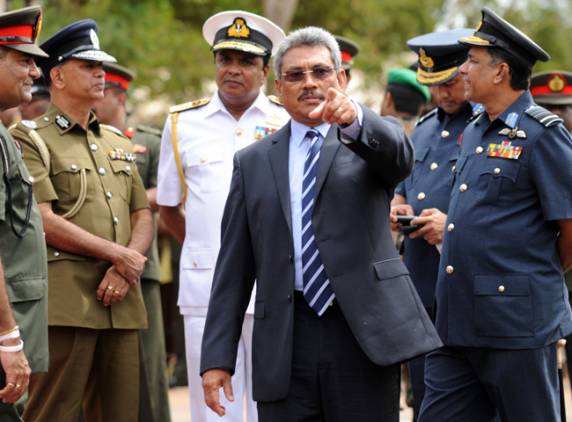
Gotabaya Rajapaksa’s Presidential Task Force (PTF) was also mentioned, which according to the Human Rights organisations “represents an alarming trend towards the militarization of the state” and recognises superior government officials as ‘‘accused of war crimes during the internal armed conflict that ended in 2009’’.
The Task Force has been described as a threat to the “rule of law” because of its broad and vaguely defined mandates to stamp out the “anti-social activities” and the “drug menace”. The task force has also been criticised as it appears it will be superseding already establish public agencies which raise concerns over accountability. Public officials who refuse to comply with orders from the task force may be threatened to be reported to the office of Sri Lanka’s President.
International Community
The human rights groups conclude their statement calling for Sri Lankan authorities to end “all forms of harassment, threats, and abuse of legal processes and police powers against lawyers, human rights defenders and journalists”.
They further stated:
“Human rights defenders living and working in Sri Lanka should be able to carry out their peaceful human rights work without fear of reprisals, which requires a safe and enabling environment in which they can organize, assemble, receive and share information”.
The organisations called on the United Nations, Sri Lanka’s associates and international donors to urgently request Sri Lanka to protect the human rights of its citizens, as well as to stop the regression of human rights.
They stated:
"While the government of Sri Lanka continues to deny Sri Lankans the ability to promote and defend human rights, particularly targeting members of civil society, we call upon the international community, including states and the United Nations, to demand that Sri Lanka live up to its international human rights obligations.
Sri Lankan human rights defenders, lawyers and journalists need to be protected now.’’
Read the full statement here.

